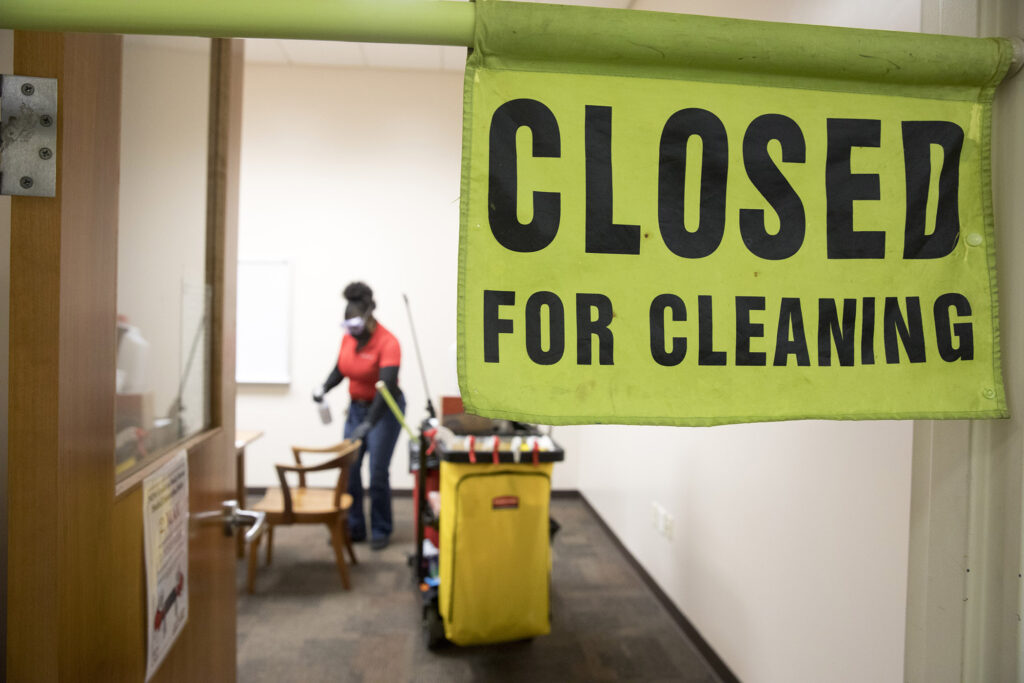The University of Georgia’s Facilities Management Division ensures classrooms across campus are cleaned and disinfected: 430 building service employees disinfect more than 650 classrooms and learning spaces every day.
The time it takes to clean and disinfect a room varies due to the size of the space, what’s in the room and whether or not it’s a routine disinfection. In most cases, a computer classroom with about 120 seats may take up to 20 minutes for two building services workers to clean and disinfect, said Kimberly J. Thomas, senior director of services for FMD. This includes thoroughly disinfecting tables and chairs and all other skin contact points within the room, removing the trash and preparing the space for the next teaching opportunity, she explained.
“We value our role for what that means for being on the front line of public health and safety at FMD: researching what products and protocols will work to keep our staff and campus community members safe and providing an opportunity for the teaching mission to carry on,” Thomas said.
The building services staff dons PPE every day to clean. For a standard cleaning, this includes a cloth face mask and gloves. Heavy PPE gear is used in an area that may be highly infected and includes a Tyvek suit, mask, goggles and gloves. In these situations, electrostatic spraying equipment is used for disinfection.
Electrostatic spray machines use a specialized solution that is combined with air and atomized by an electrode inside the sprayer. The spray contains positively charged particles that can thoroughly adhere to surfaces and objects, clinging to and coating any surface at which they’re aimed. This technique allows sanitizers, mold preventives and disinfectants to evenly coat all types of surfaces, including desks, electronics, vents and small, difficult-to-reach spaces.
For routine daily cleaning and disinfecting, FMD uses chemicals that are Green Seal certified, meet the requirements of the Centers for Disease Control and the U.S. Environmental Protection Agency, and are proven to kill the coronavirus. Ralph Johnson, associate vice president for FMD, said they typically use two different disinfectants, but primarily work with a botanical that has a faster viricidal kill rating.
FMD employee Katrina Smith disinfects study spaces in the Miller Learning Center. (Photo by Dorothy Kozlowski/UGA)
On the operational maintenance side, Johnson said the team ensures air-handling equipment is working correctly and that all filters are changed regularly and fit well. UGA’s design standards have required UV systems as part of air-handling system installations since 2012. In addition, based on CDC and industry guidance, FMD is working to increase the number of daily air changes, wherever existing systems allow.
“Our FMD team has had many conversations around what’s working and what things need to be tweaked, or what new innovative equipment or infection products we need to look at,” said Thomas. “There is no ‘one size fits all’ for this new reality in cleaning and disinfection management. It is our purpose to keep our staff safe, well informed, and intentional about how we do our jobs every day.”
